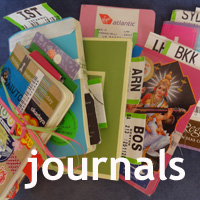Entries in textiles (114)
and then?
 Monday, January 12, 2015 at 12:45PM
Monday, January 12, 2015 at 12:45PM
My bleat for help to the Designworks FB group received an almost instantaneous reply from a couple of people, including the genius Adeline.
What more could I ask? Thrilled with such a speedy answer – and keen to crack on whilst it was all still in my head – I shot back down into the studio and followed her advice.
It worked a charm! I saved and resisted the temptation to try stitching it out there and then, for it was late Sunday evening and probably not the best time to begin.
This morning, I prepared the fabric carefully but couldn’t wait to try it out. I had some work to do first though, so exercised a little self discipline and completed that before switching my machine on
My first attempt wasn’t too bad. I didn’t hoop the fabric as accurately as I might have done – you can see the cross that’s supposed to be the centre. But it didn’t matter, because my main interest was to see what happens when by simply stitching it out. First the outline of the shape was stitched in a running stitch as a placement guide. I ironed the shape in place then, and watched as the shape was stitched another couple of times. The next step was the decorative stitch, which covered some of my earlier inaccuracy in placing the shape.
The precision is impressive as is the way in which the stitches are formed consistently.
I quickly lined another one up to reinforce my learning!
So, I need to sort something out about that puckering in the middle, but apart from that (and the poor colour in this last photo, taken in a slightly different place from the others – sorry!) I’m pretty pleased with the results.
Couldn’t have done it without a great deal of support though, for which I’m grateful. What would we do without online friends?
One step at a time
 Monday, January 12, 2015 at 10:52AM
Monday, January 12, 2015 at 10:52AM
Learning new software is always a challenge and unfortunately, the program which accompanies the cutwork tool isn’t the most intuitive. I mean, “hit the spacebar to select the hexagon” ? So, it was with as much patience as I could muster that I sat down yesterday afternoon to work my way through a step by step project.
Assuming no previous knowledge and taking everything one step at a time, what could be easier?
All went well, though a couple of occasions required close reference to the manual. It took a while and I didn’t stray from the prescribed sizes and so on because I just wanted this to work!
And then I came to the bit where it says “Save as Hexagon_Cut. Export to machine and cut.”
Cut what? How? I need more advice, because if you recall from my last post, the cutting hadn’t been terribly successful.
At this point, I went back to the place where I’d found the original idea – Adeline’s blog. Adeline has recently begun a FB group for users of the Designworks Program and though there is already a Designworks Yahoo Group which I read regularly, it was this picture on FB which caught my eye. Thankfully, she had shared a step by step process for cutting the shapes so gathering up my bondaweb, my adhesive stabiliser and a few small bits of fabric, I created a sandwich to put in my embroidery hoop.
As soon as I began to sew, I felt more confident that this was going to work. To begin with, the design had an initial running stitch around it, to hold everything in place before the cutting process began. Replacing the needle with the cutting tool, I took a deep breath and started the next stage of the process.
The result was better this time. Rather good in fact. I cut six layers of fabric which seemed to work better than a single one and that line of stitching made all the difference.
I was pleased with the result and was ready to move onto the next stage – to create the applique stitching file which would instruct my machine to do the sewing.
That’s when I hit the brick wall. After an hour or so fiddling about with the program, I simply could not access the part of the menu which I needed. I tried all kinds of things, read the manual again, searched online, closed the program and restarted, had a cup of tea, said a few choice words but nothing worked. Then I remembered the FB group and posted a question. Could anyone help me, I wondered?
I hope so!
Clever women
 Tuesday, December 16, 2014 at 10:57PM
Tuesday, December 16, 2014 at 10:57PM
I joined the black and grey clad army of travellers on the 0805 train to Paddington this morning, doing my best to add a little seasonal colour to the platform.
Arriving in London on platform one, the bronze of Isembard Kingdom Brunel seems to have been replaced by someone else. Looking at that container behind, I do hope he hasn’t built himself in somewhere*. (sorry, couldn’t resist!) Anyway, not only Paddington was there to greet me, but it was great to see Mary waiting on the platform too, having arrived from LA yesterday morning. She’ll spend a few days with us but was joining me today in her WI capacity.
We were going to meet the members and students participating in the NFWI/Kingston University Knitwear project again and was looking forward to seeing the progress they had made in the last six weeks or so. We were meeting at NFWI HQ on New Kings Road and soon, the room was buzzing with creative energy.
I can’t show you too much at this stage but suffice to say that each group had done some remarkable collaborative work which made the most of everyone’s technical and creative skills. I was especially in awe of the fashion illustrations created by the students. Each one had their own distinctive style and their design sheets and mood boards were works of art in themselves. The concepts are incredibly exciting and inspired by a wide range of source material celebrating a century of the WI. The clever ways in which traditional skills such as Dorset buttons and knitted lace have been included in contemporary knitwear makes these collections very special indeed and there was all round respect for everyone involved.
The next step is the making of the outfits. For the members, it will be time to bring their experience to the fore as they realise the student’s vision. For the students, it will be particularly stressful to bring these project to completion amidst their final degree collections, ready for the in-house fashion show in May.
I can’t wait to see what materialises!
We caught the bus back to Paddington station later this afternoon but were surprised when it stopped suddenly, somewhat short of our destination. Never mind, we walked the last part of the way, stopping for a few moments in Norfolk Square Gardens, to take a photograph of the Paddingtonscape
Inspiring insights
 Tuesday, October 28, 2014 at 12:45PM
Tuesday, October 28, 2014 at 12:45PM
My work takes me to some interesting and inspiring places on occasion and yesterday was one of the best. The WI is collaborating with a group of fashion students from Kingston University and yesterday was the second get together. Having met amongst the textile heritage of the WI at Denman College, now it was time to get an insight into the world of a university fashion department.
It had been an early start for most and after a few caffeine hits, we were ready for our look around. First stops were made in the resistant materials workshops, where the beauty of the heavy machinery made me want to stop and take photographs at almost every step.
There was something about the colours and of course, a stark contrast from the soft textile areas I normally inhabit.
What visually inspired person couldn’t have been excited by the sight of the rows of toolboxes, set on bright yellow shelves and numbered with those almost random stencilled identifiers?
But whilst I was lingering, taking photos of toolboxes and things the group was moving on and someone passed me what looked like an orthotic for a shoe.
My eye passed over the student cutting painstaking windows in an architectural model towards a table, where other moulds were stored alongside what looked like body parts. But the technician uttered a couple of magic words which captured my attention and I was immediately eager to know more.
3 D printing.
In this small corner of the room were three machines – one large, two small – and samples of what each can produce. We passed them round, learning how each was created from a design and some cartridges of what looks like strimmer cable in different colours. We were impressed …and yet, because every imperfection had been reproduced as well, a little disappointed. I need to find out more!
On then, through corridors lined with mood boards and design projects, past the moss wall which had originally been created for a fashion show but which stayed. It was so tactile, so soft and very much alive – a lovely feature in a concrete building!
Nest stop, the sample room – not only fabrics, but cupboards of costumes and historic references from which the students can work and develop ideas.
We passed the empty sewing room, where rows of industrial sewing machines stood quietly, awaiting the first year students who were working on samples including french seams, flat fell seams, darts and facings. Hang on a minute, though, didn’t we learn that kind of thing at school? Indeed we did, but these days, fashion students don’t necessarily arrive with the same kind of skills as we learned from our mothers. In fact, that’s one of the reasons for the collaboration – the WI members who are working with the students bring with them a lifetime of experience and skills like these to share.
Kingston University has a reputation for knitwear design, however, and our next stop was the knitting room. Solid, traditional machines were there, ready to be set up for the next project sampling.
Traditional machines, tried and tested with all those moving parts working beautifully in the hands of someone who understands them. A couple of students were working on their projects, quietly cursing as a thread broke or patiently setting up the next sample. All took time and creating a pattern manually on one of these machines is a very slow and painstaking process.
Which took us to the next room, technician Fiona’s pride and joy – the Shime machines. These fast, modern machines are computer driven and can create the fine knitwear designs created by the students more easily – once the software has been programmed, of course. It’s machines like these which will realise the student’s concepts and with which they will work once they graduate so it’s important that they are familiar with the potential – and their limitations, of course.
We were thrilled to see a familiar book in use by Fiona’s computer, as she translated one of the student’s designs ready to create a jacquard sample.
Before lunch, there was time for a quick look in the Stanley Picker Gallery where Laura Oldfield Ford was exhibiting her work. A fascinating combination of observations, journalling and drawing, we’d have liked longer to browse around.
But sadly, there was time only to glimpse and to learn enough to want to know more about her and her work. It was getting on for lunchtime and we still hadn’t caught up with what the students had been working on since our first meeting.
After a bite to eat, it was back into the studio then, to see the starting points of the twelve designs. The students and the members were buzzing with excitement – age and background was forgotten as a shared love of fashion, textiles and colour inspired conversation and creativity. Naomi and Shelagh chatted about different styles of headgear, taking Shelagh’s wealth of traditional Aran knitting skills into account whilst working on Naomi’s playful designs. Other groups worked on exciting ways of incorporating traditional skills and of working with handspun yarn, Dorset buttons or hand embroidered embellishments. I overheard discussions about knitting boots, of felting pattern pieces and crochet trousers…hmmm
A table full of samples to inspire the students was keeping me rather happy, too! Whilst I’m not taking part in the actual project, I’m a point of contact and support for the members – not that any of them looked in the slightest need of any support whatsoever right then.
So when Fiona asked if Jane and I would like to take a closer look at the Shime machine, you can imagine our response.
(I had to take a photo of the yarn store as we passed, by the way!)
Fiona inserted the USB stick on which she had put a file she had created for a glove.
She closed the lid, pressed the green button and the machine whirred into action. Actually, it didn’t do so much as whirr, more cranked and wheezed!
We stood watching as the carriage buzzed to and fro, firstly knitting the fingers, one at a time. It knitted them as tubes, starting at the tip, which it closed off before working towards the palm. Four fingers done and it created the palm before going back to the thumb and then finally, the body of the glove and the welt around the wrist.
About fifteen minutes later, out plopped a glove (like a cash machine!) Once steamed into shape, it was only in need of a few small hand made finishes to some loose ends and the welt and it would be ready to wear.
Marvellous.
Before we left, Fiona showed us the samples she’d created from the design of the tea cosy. WI friends will be familiar with the Parrot tea cosy in our archive which Queen Mary admired at a National Craft Exhibition in the 1920s. A true textile treasure, Fiona had taken the design and created a knitted motif which was subsequently inserted into the front of a dress. The dress was shown at the Knitting and Stitching show at Ally Pally and will be at the K & S in Harrogate too, next month – if you happen to see it and have a chance to take a photograph, I’d love one, please!
In the meantime, the students and members have gone their separate ways again, to progress to the next stage of the project whilst keeping in touch via email and our vle. We’ll meet up again in London, in December, when hopefully, there will be some exciting progress to report!








